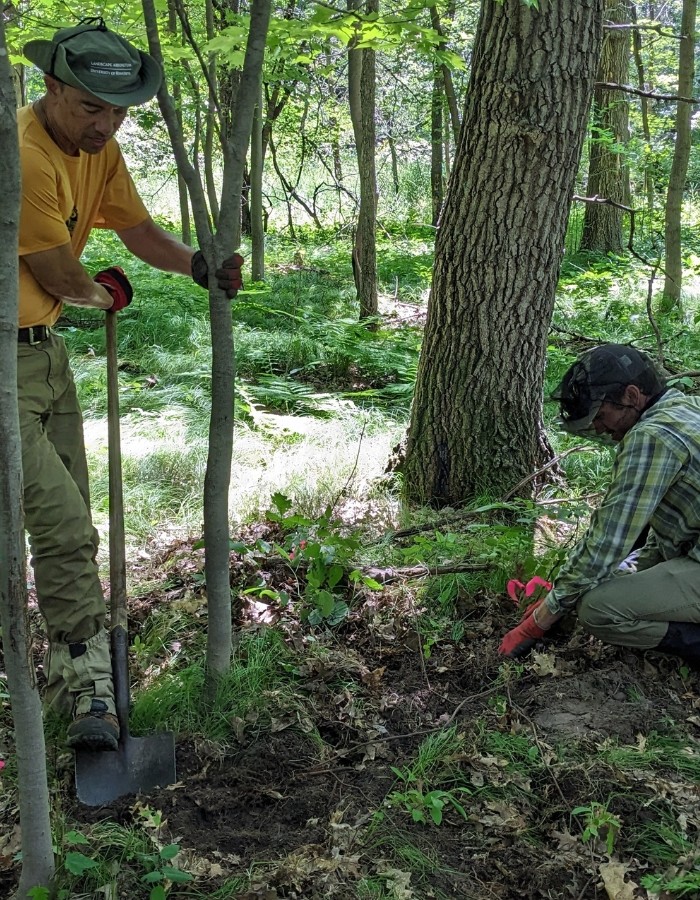Anoka Sand Plain (ASP)

About
The Anoka Sand Plain (ASP), which includes several metro counties, serves as an excellent pilot program region for protecting rare species in our area. It supports nearly 20% of Minnesota's state-listed species while representing only 2.2% of Minnesota’s land area. Unfortunately, it is also threatened by rapid development. At least 59 endangered, threatened, or special-concern plant species and subspecies are known to grow within the ASP. Since 2005, at least one-half million rare plants have been destroyed in the ASP as part of permitted development. In 2018, on a single project, a legally permitted grading for a residential development destroyed more than 2,700 individuals of three officially threatened plant species in the ASP.
ASP Rare Plant Rescue Program
The Anoka Sand Plain Rare Plant Rescue Program was formed as a direct result of concerns over plants being lost in development projects and brought together three groups to organize the program:
- The Anoka Conservation District
- Critical Connections Ecological Services, Inc.
- The Plant Conservation Program at the University of Minnesota Landscape Arboretum
All of these groups had been working separately on conservation issues, including restoration and rescue projects, and saw an opportunity to come together to build the ASP Rescue Program. This is a type of organization that is often called a Plant Conservation Alliance (PCA) around the country. A PCA brings together the separate strengths and technical expertise of the collaborating organizations, creating a nimble and flexible team capable of addressing the various needs of each particular rescue project.
Program Goals
- Rescue live rare plants (or seeds) from development footprints
- Identify permanently protected sites to provide refuge for rescued plants
- Protect rare plant genetics through seed banking
- Develop species-specific rescue protocols
- Share and disseminate program findings
In 2019, the non-funded pilot project for this group affected the rescue of more than 5,000 rare plants. Last year, in the first official year of the program and with funding from the Lessard-Sams Outdoor Heritage Council, the team rescued thousands of plants and banked seeds from 16 rare species across several different individual projects.
Help Us
Get Involved with the ASP Plant Rescue Program
While the ASP Rare Plant Rescue Program team is knowledgeable and has access to resources, we cannot do this work alone. To achieve our goals, we need to bring together a large group of collaborators. Some of the people we seek to recruit, and their potential roles, include:
- Citizen Scientists and Volunteers: On-the-ground rescue and transplant efforts; aftercare and monitoring of transplanted material; help with event
organization; and project promotion - Landowners and Land Managers: Locating and evaluating suitable protected sites for
rescued plants - Municipalities and Permitting Authorities: Notification when a rare plant take permit is applied for or issued; opportunities for team members to educate staff about rare plants
- Developers and Conservation Professionals: Notifying project areas containing rare plants; securing access to planned development sites containing rare plants
At this point this movement of plants from endangered to protected sites would not be considered an official mitigation. Rather, it would be done as an external party to any one development project in hopes of minimizing the potential for loss of a species from our region.
By performing these rescues, we strive to maintain the biodiversity for which the ASP is renowned and to show that rescues and seed-banking are viable methods of rare plant conservation. We do hope this program provides a model and will grow into a statewide effort for rescuing and protecting rare plants. If you would like to participate, helping on the ground with a rescue or at the Arb as an on-call rescued plant processor, contact David Remucal.
